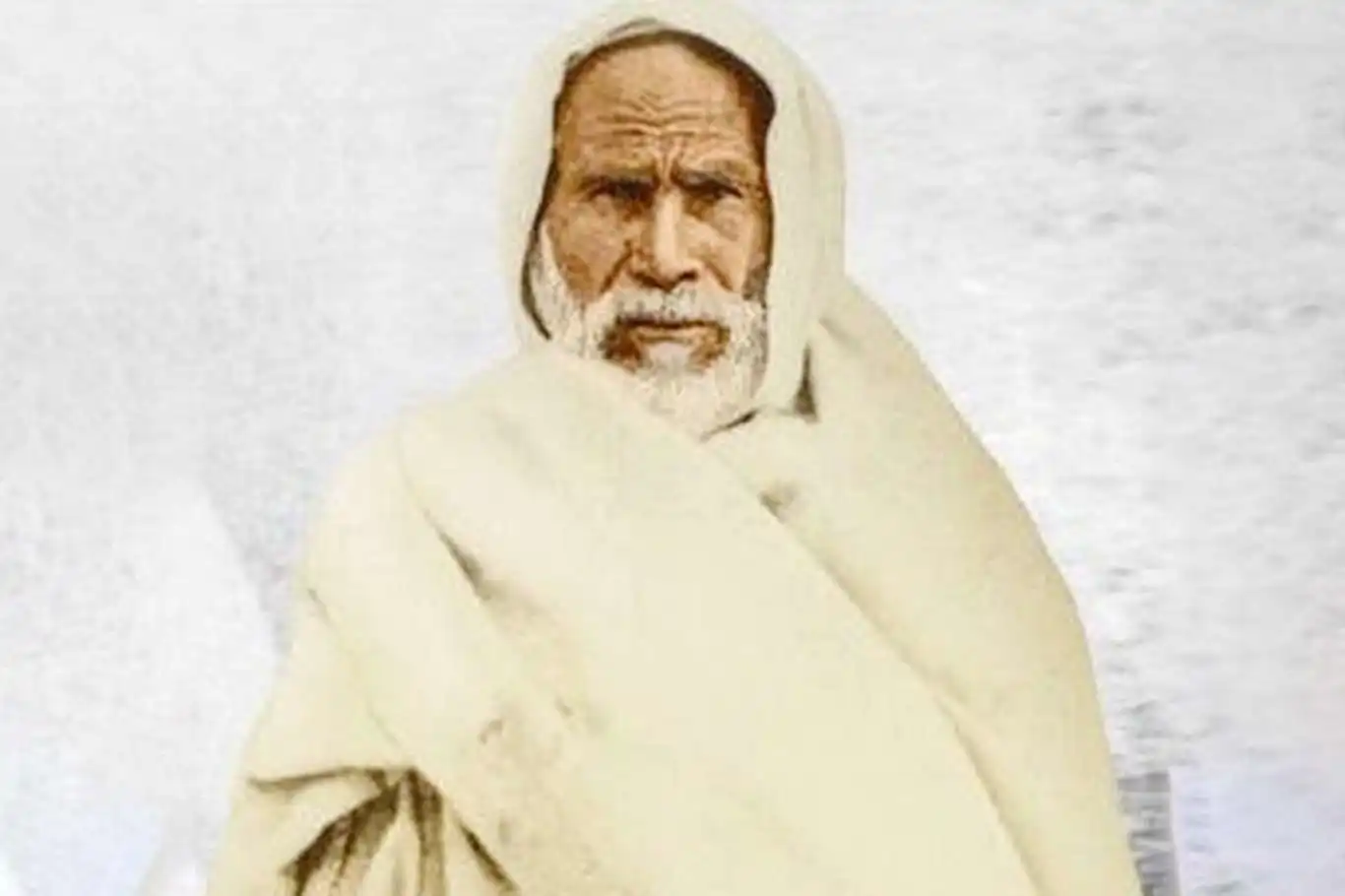The Lion of the Desert: Omar al-Mukhtar's enduring legacy 93 years after his death


Today marks 93 years since the execution of Omar al-Mukhtar, the revered leader of Libya’s resistance against Italian colonial rule, who was hanged on September 16, 1931, by Italian forces.
Known as the "Lion of the Desert," Mukhtar remains a symbol of defiance and freedom in Libya and across the Arab and Islamic worlds.
Omar al-Mukhtar, born in 1858 in Zanzur near Tobruk, led the Libyan resistance in Cyrenaica (eastern Libya) under the banner of the Senussi movement. A devout scholar and teacher of the Quran, Mukhtar became a leader of the Libyan insurgency after the Italians invaded the region in 1911. For nearly two decades, he conducted guerrilla warfare against the Italian forces, using his deep knowledge of the region’s geography to outmaneuver the occupiers in a series of successful attacks.
His leadership of the resistance became particularly prominent during the “Pacification of Libya,” an Italian campaign marked by extreme repression. Mukhtar’s forces, despite being outgunned and outnumbered, continued to resist, staging ambushes, cutting supply lines, and targeting Italian outposts. His resilience and tactical expertise earned him respect, even from his Italian adversaries.
Despite his efforts, the Italian authorities, under the command of General Rodolfo Graziani, intensified their campaign to crush the Libyan resistance. By 1931, after years of military operations, blockades, and the establishment of concentration camps, the Italian forces captured Mukhtar during an ambush near Slonta on September 11. Five days later, on September 16, 1931, he was publicly executed by hanging at the age of 73 in the Suluq prison camp.
Omar al-Mukhtar’s execution was intended to end the Libyan resistance, but instead, his martyrdom became a rallying point for the Libyan struggle for independence. To this day, Mukhtar is celebrated as a national hero, and his legacy of courage and resistance against colonialism continues to inspire movements across the region.
In 1981, Mukhtar’s legacy reached global audiences through the acclaimed film Lion of the Desert, which depicted his life and resistance. His memory is honored annually in Libya and remains a symbol of anti-colonial struggle and the fight for freedom.
As Libya commemorates the 93rd anniversary of his martyrdom, Omar al-Mukhtar's enduring legacy continues to resonate, representing the steadfast spirit of those who fight against oppression and for the right to self-determination. (ILKHA)
LEGAL WARNING: All rights of the published news, photos and videos are reserved by İlke Haber Ajansı Basın Yayın San. Trade A.Ş. Under no circumstances can all or part of the news, photos and videos be used without a written contract or subscription.
The European Union is grappling with an unprecedented escalation in drug trafficking, with officials estimating that over 100 tons of cocaine enter the continent each year—a figure that European security agencies admit may represent only a fraction of the true scale.
On November 2, 1917, British Foreign Secretary Arthur James Balfour sent a short letter to Zionist leader Lord Rothschild, pledging Britain’s support for a Jewish homeland in Palestine.
One year has passed since Yahya Sinwar, the legendary leader of Hamas in the Gaza Strip, was martyred in a direct confrontation with Israeli forces in Rafah.
Two years have passed since the morning that forever altered the course of the Palestinian struggle — the dawn of October 7, 2023, when the besieged enclave of Gaza broke through its prison walls in a thunderous uprising now etched into history as Operation Al-Aqsa Flood.